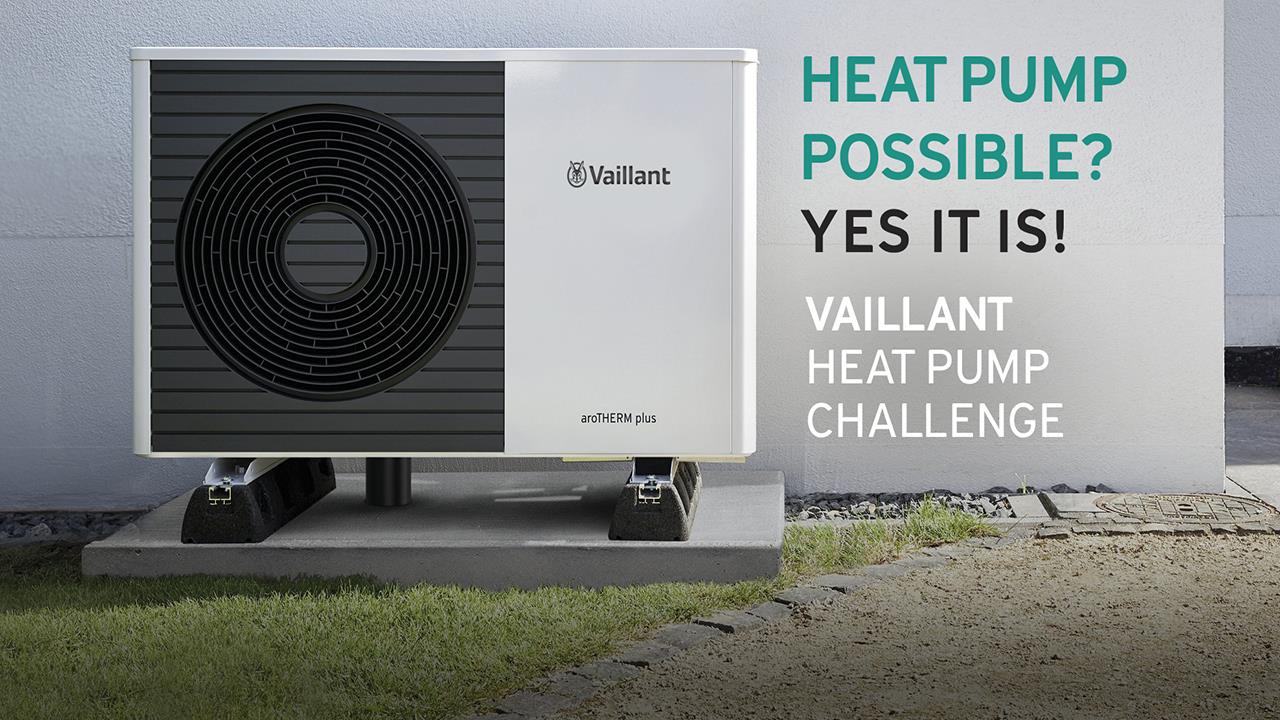

Despite the growing popularity of heat pumps in the UK, recent research carried out on behalf of Vaillant, revealed customers still have many questions surrounding this heating technology – often preventing both installers and UK homeowners from taking the first step to fitting one.
As a result, Vaillant has decided to shed light on installing and owning this type of heating technology.
The Vaillant Heat Pump Challenge is asking installers to submit the most interesting and challenging residential heat pump installations they have been involved in, where many may have initially thought it wouldn’t be feasible or effective.
The winning projects will have the chance to film with British property expert and presenter, Kevin McCloud, who said: “I’ve spent much of my career working with visionary people who have been able to realise their dreams - no matter how ambitious - by building extraordinary homes, despite those around them saying it’s not possible.
“We’re now in a similar situation in the home energy sector where some have enthusiastically embraced heat pump technology while some people are fearful about reliability and suitability, or simply don’t understand what they are, how they work, and the efficiency benefits they offer.
“Heat pumps are quite different to boilers in the way they operate but they’re very efficient and straightforward. I was an early adopter and chose to put them in my current home too.
“So, I’m very excited to be part of Vaillant’s Heat Pump Challenge; it’s a first, an opportunity to find out what is happening in the here and now to make heating our homes more efficient and climate friendly.
“I’m very much looking forward to discovering some great projects and encourage anyone who has installed a heat pump to tell us all about it.”
To enter the challenge, installers simply need to create a 30-second video describing their heat pump project and share it on Twitter, Instagram or Facebook using #VaillantHPChallenge and tagging Vaillant UK in the post.
Alternatively, projects can be submitted by emailing heatpumpchallenge@vaillant.co.uk with details of the project and the solution put in place, or by using the online form at www.vaillant.co.uk/heatpumpchallenge, where more information about the challenge is also available.
The closing date for submissions is 17 March 2023.
All entries should be for UK homes, either in the process of, or have completed the installation stage, and use a Vaillant heat pump as the main source of hot water and heating.
Henrik Hansen, Managing Director of Vaillant Group, UK and Ireland, said: “We’re looking for those projects where a heat pump wasn’t perhaps the easiest or most obvious solution, but it has delivered a great result for the homeowners and their property.
“An older cottage, an apartment building with a heat pump on a balcony or Victorian terrace, for example.
“We know this type of install is happening across the country, so we want to highlight those times people made the decision and invested in low-carbon heating, maybe despite people saying it wouldn’t work.
“Perhaps the install was easier than expected or technical solutions were found to make it a success.”
Shortlisted entries will be announced in March and reviewed by a panel of industry judges including Kevin McCloud.
The three winning projects will then be filmed, giving entrants the opportunity to discuss the heat pump system in more detail with McCloud - providing a unique opportunity to promote their skills and business.
Henrik Hansen, Managing Director of Vaillant Group UK and Ireland, concluded: “Heat pumps have existed for many years and are a proven solution that can help decarbonise homes today. In many European countries, they are well known and widely adopted as home heating solutions.
“We know that with the right skills and expertise, heat pumps can be possible in most circumstances whether a small apartment in a bustling city, or a rustic farmhouse in the countryside. With the Vaillant Heat Pump Challenge, we are looking for those installations where a heat pump was the most desirable choice for the heating system, but the age of the building, surrounding environment or existing system made people question the possibility.
“I’m looking forward to seeing the entries from the installer community.”
If you'd like to keep up-to-date with the latest developments in the heating and plumbing industry, why not subscribe to our weekly newsletters? Just click the button below and you can ensure all the latest industry news and new product information lands in your inbox every week.